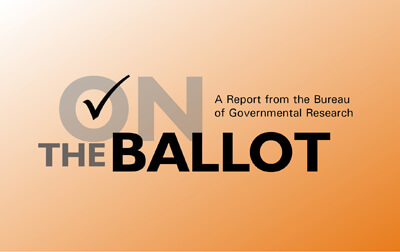
Tax for New Orleans elderly runs into Mayor Cantrell’s infrastructure needs
By Greg LaRose
Source: NOLA.com | The Times-Picayune
March 29, 2019
A property tax proposal on Saturday’s (March 30) ballot to support elderly services in New Orleans has given Mayor LaToya Cantrell a platform to call for more accountability and transparency from agencies not under City Hall control. Yet the person who leads the organization most likely to benefit from the new tax revenue said its history of clean audits proves it has properly spent the public resources it already receives.
“It’s kind of disheartening,” said Harold Rodgers III, who has led the local Council on Aging since 1999. “It’s being shown that we’re not accountable.”
For the mayor, it’s more about priorities, however. She said in an interview Thursday that city infrastructure is a more pressing need, and seniors would benefit the most from more money spent on matters such as drainage.
“When disasters hit, it’s our seniors who are hit the hardest,” Cantrell said.
The 2-mill tax voters will consider would raise $6.6 million annually for the Council on Aging, although the proposal doesn’t specify that dedication. That lack of detail is one reason the mayor and the Bureau of Governmental Research oppose the tax.
Cantrell said an “accountability process” should be attached to any city resources that go to an entity outside the purview of her office or the City Council. An upcoming referendum includes that feature, she said.
On May 4, voters are being asked to split up 6.31 mills in existing property taxes. Doing so would link revenue for City Park and Audubon Park, two independent entities, with the city’s Parks and Parkways department and recreation commission.
Audubon has a dedicated city property tax, but voters soundly rejected a 50-year renewal of that millage five years ago. City Park has never had a dedicated source of revenue from the city, relying on self-generate fees and a piece of slot machine tax revenue from the state.
Councilman Jason Williams, who supports the tax for elderly services, has said the City Council would lock in a specific dedication to the Council on Aging once voters approve it. In an interview Thursday, he insisted the city is capable of handling multiple priorities, challenging the mayor’s point that infrastructure has to be put ahead of all other needs.
“I’m not ready to pit pipes against people,” Williams said, referencing the city’s drainage and water system problems. “This is about human beings, people who have worked in this city, lived in this city and paid taxes for many years.”
To further explain her opposition, the mayor said she has received “a lot of complaints from seniors” about the Council on Aging’s services. They include not matching city resources with senior centers based on the number of clients served, and the poor quality of food offered through its meal programs.
Any request for new revenue needs to take into account the other city agencies that provide services to seniors, Cantrell said. The recreation department and library system already have ample offerings for the elderly, and the senior population is an emphasis for the city health department.
A senior-focused millage for public health needs could be proposed in the future, she added, but infrastructure will be at the forefront for the foreseeable future.
The Council on Aging’s “preliminary budget,” if the tax is approved, would use $1.6 million of the new revenue to expand its Meals on Wheels program, which Rodgers said serves 500 people but has a wait list of 1,300. Another $1.1 million is planned for its homemaker services program hires people to perform light housekeeping for seniors. It has a wait list of 500.
Additional money will be used to enhance senior center facilities and meal programs, according to Rodgers. The Council of Aging operates 14 senior centers in the city, three directly and 11 through contractors.
The city has budgeted $1.4 million for the agency this year. Its $5 million in operating revenue for 2018 included a comparable amount from the city, $2.5 million from the Governor’s Office for Elderly Affairs as well as federal and charitable grants.
As a quasi-governmental agency that receives city funding, the Council on Aging can’t campaign on its own behalf to drum up support for the tax. A political action committee created to support the agency’s agenda had between $4,000 and $5,000 on hand to put toward the election, Rodgers said.
By comparison, Cantrell’s PAC, Action New Orleans, has spent just less than $20,000 on mailers and online ads, said communications director Kristine Breithaupt.
Every vote these efforts can muster will be critical Saturday. The tax proposal is only item on the ballot Saturday, when low turnout is expected.
“If it doesn’t pass, seniors are not going anywhere, the problem is not going anywhere,” Rodgers said.
Fair Use Notice
This site occasionally reprints copyrighted material, the use of which has not always been specifically authorized by the copyright owner. We make such material available in our efforts to advance understanding of issues and to highlight the accomplishments of our affiliates. We believe this constitutes a “fair use” of any such copyrighted material as provided for in section 107 of the US Copyright Law. In accordance with Title 17 U.S.C. Section 107, the material on this site is available without profit. For more information go to: US CODE: Title 17,107. Limitations on exclusive rights: Fair use. If you wish to use copyrighted material from this site for purposes of your own that go beyond “fair use,” you must obtain permission from the copyright owner.
